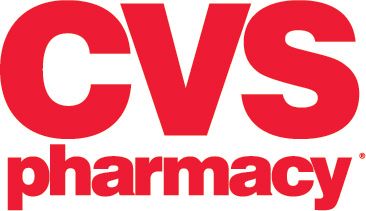 A TCPA class action lawsuit filed in the United States District Court for the Middle District of Florida alleges that CVS Pharmacy Inc. has been sending consumers unsolicited text messages in violation of the Telephone Consumer Protection Act (TCPA).
A TCPA class action lawsuit filed in the United States District Court for the Middle District of Florida alleges that CVS Pharmacy Inc. has been sending consumers unsolicited text messages in violation of the Telephone Consumer Protection Act (TCPA).
According to the TCPA lawsuit, starting around February 2012, CVS implemented an automated telephone dialing system that sent text message alerts related to customer prescriptions. The text messages were not limited to “pick-up” reminders, but also included marketing notifications relating to services such as text-based refill options and other in-house services offered by CVS.
However, according to the CVS TCPA lawsuit, CVS failed to obtain customers’ prior express written consent, and instead automatically enrolled anyone filling a prescription into the text message system.
CVS is accused of sending thousands of unsolicited text messages to consumers without the consent to do so. Specifically, the lawsuit alleges that “by sending the text messages at issue … [CVS] caused plaintiffs and members of the class actual harm, including the aggravation and nuisance that necessarily accompanies the receipt of unsolicited text messages.”
The TCPA lawsuit also alleges that CVS’ process of allowing consumers to opt-out of the text messaging program is unlawful. Initially, consumers provide consent to receive automatic text messages to their cellular telephones reminding pharmacy customers to refill their prescriptions or that their prescriptions are available for pick-up.
The problem for CVS, however, is the fact that once a consumer chooses to opt-out of the program, CVS would nonetheless then send an additional automatic text message notifying them of the opt-out.
The TCPA lawsuit further claims that CVS unlawfully sent unsolicited text messages to consumers regarding marketing and promotional opportunities — such as availability of the flu shot. The alleged problem is that the consumers consented to receive prescription notifications but not other marketing or promotional information.
Unsolicited Text Messages
The Telephone Consumer Protection Act (TCPA) is the main federal law that seeks to curb unsolicited phone calls using an automatic telephone dialing system. Put simply, the TCPA prohibits the use of an autodialer to make any call or send any text message to a wireless phone number without the prior express consent of the contacted party.
This ban applies even if you have not placed your phone number on the national Do Not Call registry.
The law specifically states that each unsolicited text message carries a civil fine of between $500 to $1,500 per text.
The CVS TCPA class action lawsuit seeks an unspecified amount of damages, as well as an injunction and payment of all attorneys’ fees incurred in connection with the lawsuit.
CVS is no stranger to TCPA class action lawsuits, as two separate class actions are pending against the company in Illinois, each alleging that it violated the “robocall” provisions of the TCPA.
Join a Free TCPA Class Action Lawsuit Investigation
If you were contacted on your cell phone by a company via an unsolicited text message (text spam) or prerecorded voice message (robocall), you may be eligible for compensation under the Telephone Consumer Protection Act.
ATTORNEY ADVERTISING
Top Class Actions is a Proud Member of the American Bar Association
LEGAL INFORMATION IS NOT LEGAL ADVICE
Top Class Actions Legal Statement
©2008 – 2025 Top Class Actions® LLC
Various Trademarks held by their respective owners
This website is not intended for viewing or usage by European Union citizens.















One thought on TCPA Class Action Lawsuit: CVS Sent Unsolicited Texts
I received too many of these text and phone calls to count. The same thing from Walgreens as well. The text an calls continued after I no longer was a customer of either pharmacy for my prescriptions. I am interested in joining this case please advice me how I can join
Thank you very much
Francella Martinez